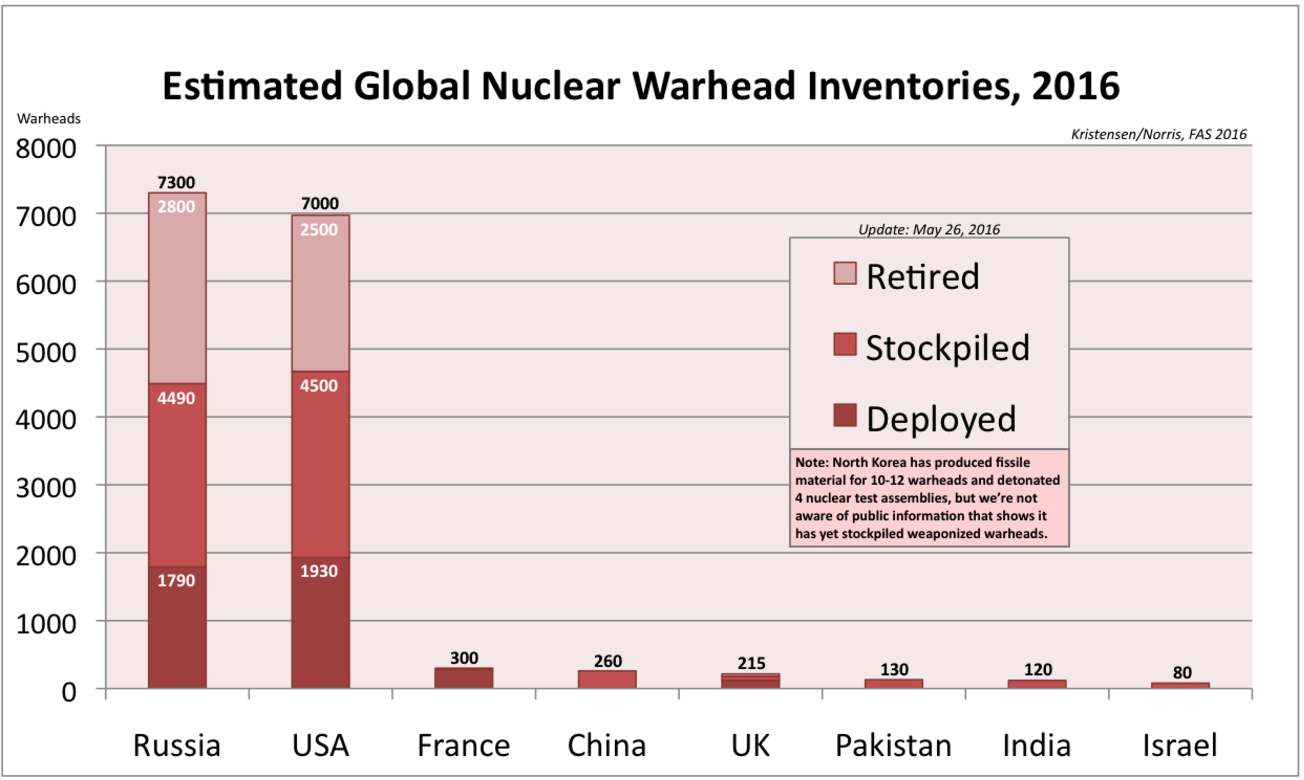Donald Trump signals US nuclear arsenal expansion until 'world comes to its senses'
President-elect hints at reversal of decades' old policy of disarmament amid escalation in Cold War rhetoric

Your support helps us to tell the story
From reproductive rights to climate change to Big Tech, The Independent is on the ground when the story is developing. Whether it's investigating the financials of Elon Musk's pro-Trump PAC or producing our latest documentary, 'The A Word', which shines a light on the American women fighting for reproductive rights, we know how important it is to parse out the facts from the messaging.
At such a critical moment in US history, we need reporters on the ground. Your donation allows us to keep sending journalists to speak to both sides of the story.
The Independent is trusted by Americans across the entire political spectrum. And unlike many other quality news outlets, we choose not to lock Americans out of our reporting and analysis with paywalls. We believe quality journalism should be available to everyone, paid for by those who can afford it.
Your support makes all the difference.Donald Trump has sparked fears about a new global nuclear arms race with a tweet that reverberated around the world in which he called on the US to expand its nuclear arsenal.
In a single comment that will raise more questions about both his temperament and foreign policy experience, the President-elect said the US must "greatly strengthen and expand" its nuclear arsenal until "the world comes to its senses regarding nukes".
He gave no other details about his plans. But his comment immediately triggered fears that the next US president will reverse decades of policy in which the nation has, in tandem with Russia, sought to reduce its nuclear arsenal.
The Associated Press said the Thursday morning comment from Mr Trump came a day after he met with several military procurement officers to discuss defence budgets, including Lt Gen Jack Weinstein, the deputy chief of staff for strategic deterrence and nuclear integration for the Air Force.
During the campaign, Mr Trump had suggested that the US expand its arsenal and he also suggested that the “better off” other countries, including Japan and South Korea, should have nuclear capabilities. He said that would mean that the US’s traditional allies might not be so dependent on Washington.
Mr Trump was spending Thursday at his private estate in south Florida, where he has been meeting with advisers and interviewing potential cabinet nominees. He is also expanding his White House staff, announcing that campaign manager Kellyanne Conway will join him in the West Wing as a counselor.
Reaction to Mr Trump’s comments was quick. Anti-nuclear campaigners said the comments underscored how little Mr Trump understood the danger of nuclear expansion – something on which there had been bipartisan agreement in the US for decades.
Kate Hudson, General Secretary of the Campaign for Nuclear Disarmament (CND), told The Independent she was “deeply concerned” by Mr Trump’s comments.
“It was very striking that during the campaign he made comments that suggested he did not understand much about nuclear weapons, and suggested other countries should develop their own,” she said.
“The US already has enough weapons to destroy everything there is several times over. Why does it need more? It seems crazy. He needs to understand that this is the best way to start a nuclear war.”

It comes as Russian President Vladimir Putin announced that Russia's military can overpower any potential foe.
"We can say with certainty: we are stronger now than any potential aggressor," he told an annual end-of-year defence ministry meeting. "Anyone!"
The Federation of American Scientists has estimated there are currently 15,375 nuclear warheads held by eight countries. Of those, Russia has an estimated 7,300, the US has 6,970, France has 300, China possesses 260, the UK has 215, Pakistan has 130, India has 120 and Israel has 80, though it refuses to confirm or deny its arsenal.
Efforts by the two major nuclear powers to reduce their arsenal date to the late 1960s. SALT I – or the Strategic Arms Limitation Talks Agreement signed on 26 May 1972 – froze the number of strategic ballistic missile launchers at existing levels.
John Pike, director of the Washington-based military studies group GlobalSecurity.Org said that Mr Trump’s actions appeared to fit with the suggestions of critics who say Mr Trump – however unlikely it may sound – is working to benefit Russia.
“What he has done is what someone would do it they wanted to completely upend the US’s security posture,” he said.
Dr Janne Nolan, chair of the Nuclear Security Working Group, a bipartisan group of policy experts working to build consensus on nuclear security issues, said Mr Trump would be inheriting a $300bn nuclear modernisation programme agreed by the Obama administration.
“There is a certain irony here in that the outgoing president, who was rhetorically committed to a vision of global nuclear elimination, leaves behind the most ambitious and expensive nuclear modernisation plan of several decades for his successor to execute,” she said.
“It remains to be seen what President-elect Trump will actually do that is new or different. It would appear that he will need time to learn that effective 21st century nuclear deterrence is a far more nuanced challenge with complex considerations and not so easily achieved with additional weapons or larger budgets.”
Join our commenting forum
Join thought-provoking conversations, follow other Independent readers and see their replies
Comments